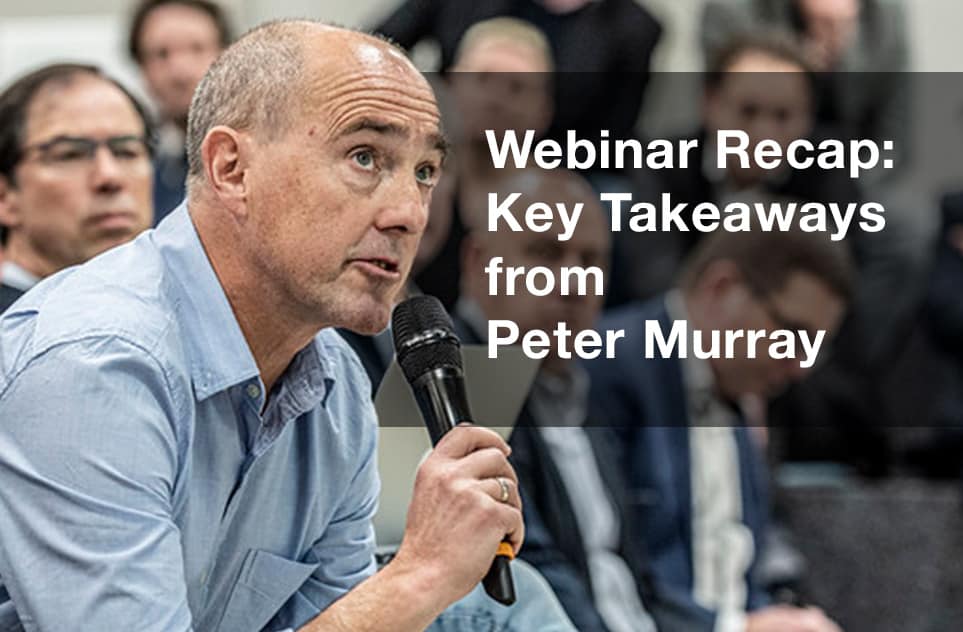Never go back they say!
I am always a little uncertain when covering a previous subject matter in podcasts or webinars, as I am very conscious that our audience want new content and not simply a rehash of an old debate. However, even when we were coming to the end of the first recording back in September it was obvious there was clearly so much more we could have talked about and definitely more we needed to learn and do. We had done 40 minutes and did not get to half of the questions that we had prepared. Adding to that, in the 6 weeks that followed SBC in Barcelona a lot had happened that would help inform and guide the debate. Germany, Netherlands and Belgium led the way but it is fair to say that a second discussion was timely.
This time around we were delighted to increase the scope of the debate by making sure the research and academic community was included because, ultimately, whatever the industry does has to be based on evidence. We need to know that how we benchmark our efforts, and hopefully our success, has to be meaningful and measurable and the key to that will be research.
So after another 60 minutes of debate, what did we find?
KPIs will be critical but there is little consensus and research is vital
On the panel we looked at how some consumer protection (preferred to the term responsible gambling) tools are more appropriate for people with some risk indicators and difficulties staying in control of their gambling (e.g., time outs), while others (e.g. deposit limits) should potentially be used by all customers as they are intended to prevent a problem vs. minimise a harm. Sally Gainsbury’s recent large study across 6 Australian operators and 31,989 customers looked at the use of messages to encourage tool use before inevitably leading to the next step which is developing customized, ‘just in time’ messages.
We debated whether limits should be voluntary and mandatory with the consensus being that mandatory was better but as you will see from Germany and Belgium, regulators are taking a different view.
All of this proves that there is a real appetite within the industry to do the right thing but without consensus we are not moving as fast as we could. Research is critical if we are to be guided by fact.
Regulators are getting serious but are they informed?
The UK is very high profile in this area with many industry studies and initiatives, but they are not the only regulator imposing restrictions. Germany has just implemented its regulatory transition regime whilst the Netherlands have also been making clearer their views with regulation due in March 2021.
The day before the panel we were made aware of the fact the Belgium regulator was trialling a national project with the National Bank of Belgium aiming to limit maximum weekly deposits by way of an affordability check to assess ‘payment and debt issues’. Nanny state or effective responsible gambling initiative was the discussion point. It was great to get the viewpoint from the Malta Gaming Authority that this cannot be prescriptive at this stage and that we need more research before potentially something that doesn’t work or implementing something that could be counterproductive.
Collaboration and the importance of the banks
It seems obvious but no one person or organisation is going to solve this so, in order to get the KPIs that are effective and outcome based, we are all going to have to work together and in this regard it has been really interesting to see the industry start to reach out to the financial services sector for support.
The Belgium regulator is utilizing the services of the Belgian National Bank to support affordability checks, news of which comes hot on the heels of the UK regulator asking for input from the UK financial services sector. Are banks going to be the de facto guardian of identity and affordability longer term? From the research perspective it was noted that the industry has always been reticent to share data but this has to change and maybe the UK’s single customer view, the 3 shared databases in Germany or the Netherlands centralised system will lead the charge.
Overall
In many ways the lack of clarity was reflected in the panel. Lots of initiative, lots of support and creativity and a huge willingness to do the right thing, but if we are to make this a success we must work on the facts and then invest in research. The topic is vital and needs more debate but actions speak louder than words. Having said that there definitely seems scope for a third instalment!
If you or your business would like to know more about W2’s range of products, contact us here.

